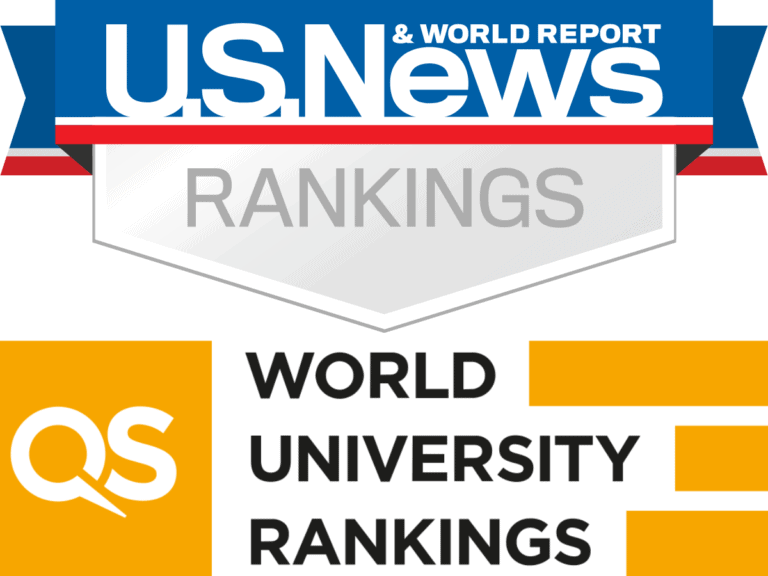Beyond the Rankings: How College Factual Redefines Choosing the Right College
Some college ranking sites are more prominent players than the rest, serving as some go-to online destinations for high school teenagers preparing for their college careers.
One of those is College Factual.
Founded to simplify the college selection process, it takes pride in providing college rankings that zoom in on essential factors important to many, from cost of attendance to personal fit.
In this post, we’ll talk about the methodology College Factual uses, thus allowing you to determine whether or not it’s the college ranking site you should rely on or the competition, such as US News, Niche, and The Princeton Review.

Methodology Employed in Ranking Colleges
Every reliable college ranking site has a unique methodology.
The one used by College Factual consists of the following main indicators:
- Accreditation score. This criterion emphasizes the sheer importance of accreditation, both regional and programmatic, in making sure that employers and graduate schools will recognize the degrees a college confers.
- Employment score. Simply put, this criterion evaluates the employability of graduates by considering critical factors such as employment rate and average annual earnings.
- Demand score. What this criterion does is it serves as a reflection of a college’s desirability according to the number of applications it receives and the matriculation rate per admissions cycle.
- Education score. Educational investments, student-to-faculty ratio, and graduation rate are metrics in the education score criterion for an effective assessment of an institution’s academic program quality and reliability.

- Debt score. It’s common knowledge that college isn’t cheap these days, which is why College Factual considers the financial burden of attending a school by evaluating student loan debt and default rate.
- Peer score. Determining how well incoming students might fit into the campus culture involves examining the diversity of the student body and the SAT and ACT scores of recent admits.
Popularity in the College Ranking Realm
Like popular college ranking sites such as US News, Niche, and The Princeton Review, College Factual has its own following in the form of college-bound teens, parents, admissions experts, and educators.
To many, its rankings are more transparent and reliable.
College Factual doesn’t have the same widespread trendiness as some of the heavy hitters in college ranking.
However, it has carved out a niche for itself by concentrating on coming up with data-driven assessments rather than subjective surveys that can contaminate and compromise its annual listings.
Let’s quickly compare College Factual with some of the most popular college ranking sites around:

- US News. The consensus is that US News is the gold standard of college ranking. US News has a methodology that’s far more complex than that of College Factual, which can be both good and bad. It can be advantageous for students who prefer a comprehensive method, while it can be a letdown for those who want a simpler approach.
- Niche. Making Niche a standout is that its rankings are according to the opinions of actual college students, obtained through polls. As a result, Niche’s rankings are on the subjective side of the fence. Meanwhile, College Factual has a more data-driven approach, making its college rankings more objective and transparent.
- The Princeton Review. Similar to Niche, The Princeton Review heavily relies on insight coming from students pursuing undergraduate degrees, focusing more on campus life and extracurriculars. While appealing to many, its listings may not be as rigorous and unprejudiced as those that College Factual produces.
Which Types of Students Use College Factual
The methodology College Factual uses makes the college ranking site appealing to a range of students gearing up for college, each having unique preferences and priorities in the college selection process.
In most instances, it attracts data-driven students.
You may find College Factual better than some ranking sites, particularly those that heavily rely on student opinions if you prefer to make a college choice based on concrete data rather than subjective details.
College Factual also appeals to a lot of budget-conscious high schoolers and their parents, given that the well-known site considers
the financial implications of working on an undergraduate degree.
By looking into factors like educational loan debt, repayment rates, and salaries, a college’s value is highlighted.
Students from outside the United States looking to attend some of the country’s academic institutions may find College Factual’s listings helpful, especially in terms of programs, support services, and campus diversity.
Are you one of those whose college choice is career-driven?
Then allowing College Factual to guide you in building your college list may be a wise move, especially because its methodology also emphasizes post-graduation outcomes like employability and earning potential of graduates.

Before You Check Out College Factual
College Factual is one of the most trusted college ranking sites among American college-bound teens.
It may not be as popular as some of the top-tier rankers out there, but it appeals to a certain audience, particularly those who prefer a more objective and simplified approach to selecting a college.
List down some of the factors you deem important to determine whether or not College Factual is right for you.
No matter the result, affirmative or otherwise, refrain from choosing a postsecondary institution based solely on what College Factual or any other college ranking site suggests or recommends.
Read More:
- US News Ranking vs. QS Ranking
- US News vs. Forbes
- 14 Alternatives to US News Rankings
- Washington Monthly vs. US News
- Niche vs. US News
Disclaimer: The views and opinions expressed in this article are those of the authors and do not necessarily represent those of the College Reality Check.





